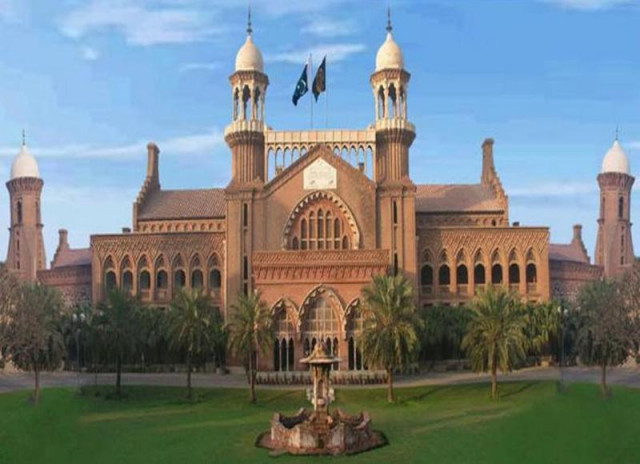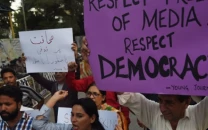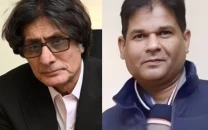Do Musharraf’s actions fall under Article 6, asks LHC
Court adjourns hearing of former president’s petition till 17th

Lahore High Court. PHOTO: EXPRESS
The court resumed the hearing of a petition filed by the former president, who sought a stay on treason case trial being conducted against him until he recuperated and appeared before the court.
According to Article 6, any person who abrogates or subverts or suspends or holds in abeyance, or attempts or conspires to abrogate or subvert or suspend or hold in abeyance, the Constitution by use of force or show of force or by any other unconstitutional means shall be guilty of high treason.
A person found guilty of high treason, as defined in Article 6 of the Constitution, shall be punishable with death or life imprisonment.
“Isn’t declaring an emergency and abrogating the Constitution two separate things?” Justice Sayyed Mazahar Ali Akbar Naqvi asked Additional Attorney General Ishtiaq Ahmad Khan.
“Where does the Article 6 apply? What does the Supreme Court judgment say?” Justice Naqvi probed further.
Musharraf’s counsel pleaded that the petition against his client was filed on the directives of former prime minister Nawaz Sharif instead of the federal government.
The court adjourned the hearing till December 17 and directed Additional Attorney General Ishtiaq A Khan to discuss the matter with the interior secretary on whether the formal military ruler imposing emergency in 2007 amounted to the abrogation of the Constitution.
The court further asked whether or not the complaint could be withdrawn at this stage and sought the interior secretary’s opinion on how Musharraf’s 2007 action fell under Article 6.
Musharraf has maintained that owing to his deteriorating health, multiple life-threatening ailments and of his aged mother, he was unable to return to Pakistan despite having a strong desire to do so.
The former military ruler, who is currently in Dubai for treatment of a ‘rare’ medical condition, recently recorded a video message from his hospital bed in which he said that he was ready to record his statement in the case.
“A judicial commission can come here and hear me out. It must see my health condition and make a decision. The commission, with my lawyer, must then be heard in the court,” he added.
On November 29, the Islamabad High Court (IHC), while hearing a petition of the interior ministry, had restrained a special court from announcing its verdict in the Musharraf treason case.
In a two-page brief order, the IHC asked the special court to hear the pleas of all sides and decide the case “in accordance with the law” while directing the government to form a new prosecution team for the case by December 5.


















COMMENTS
Comments are moderated and generally will be posted if they are on-topic and not abusive.
For more information, please see our Comments FAQ